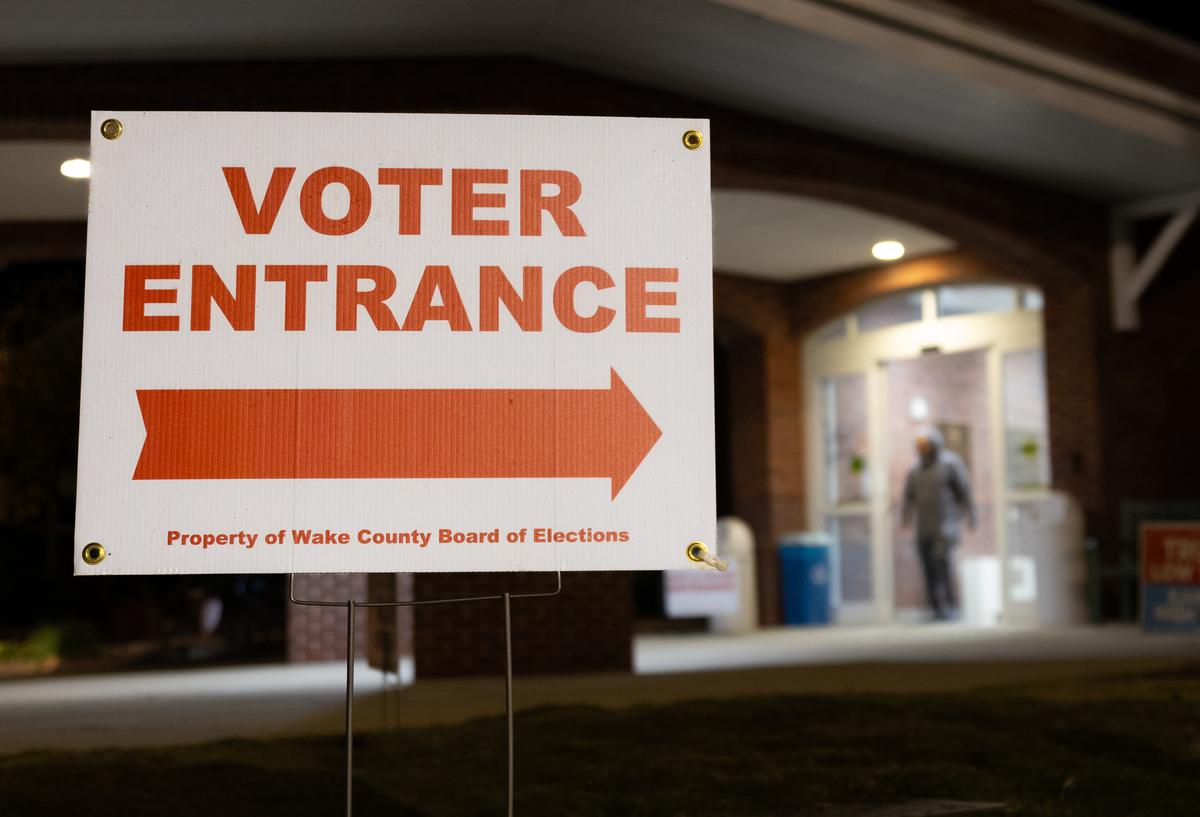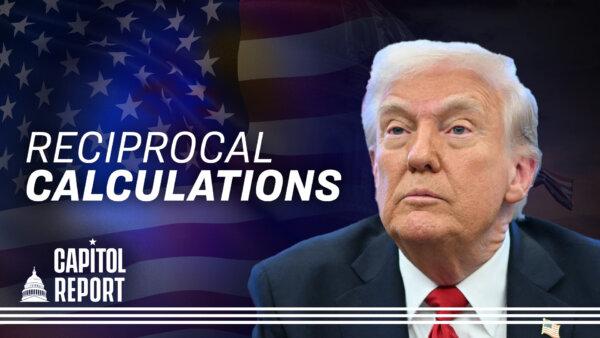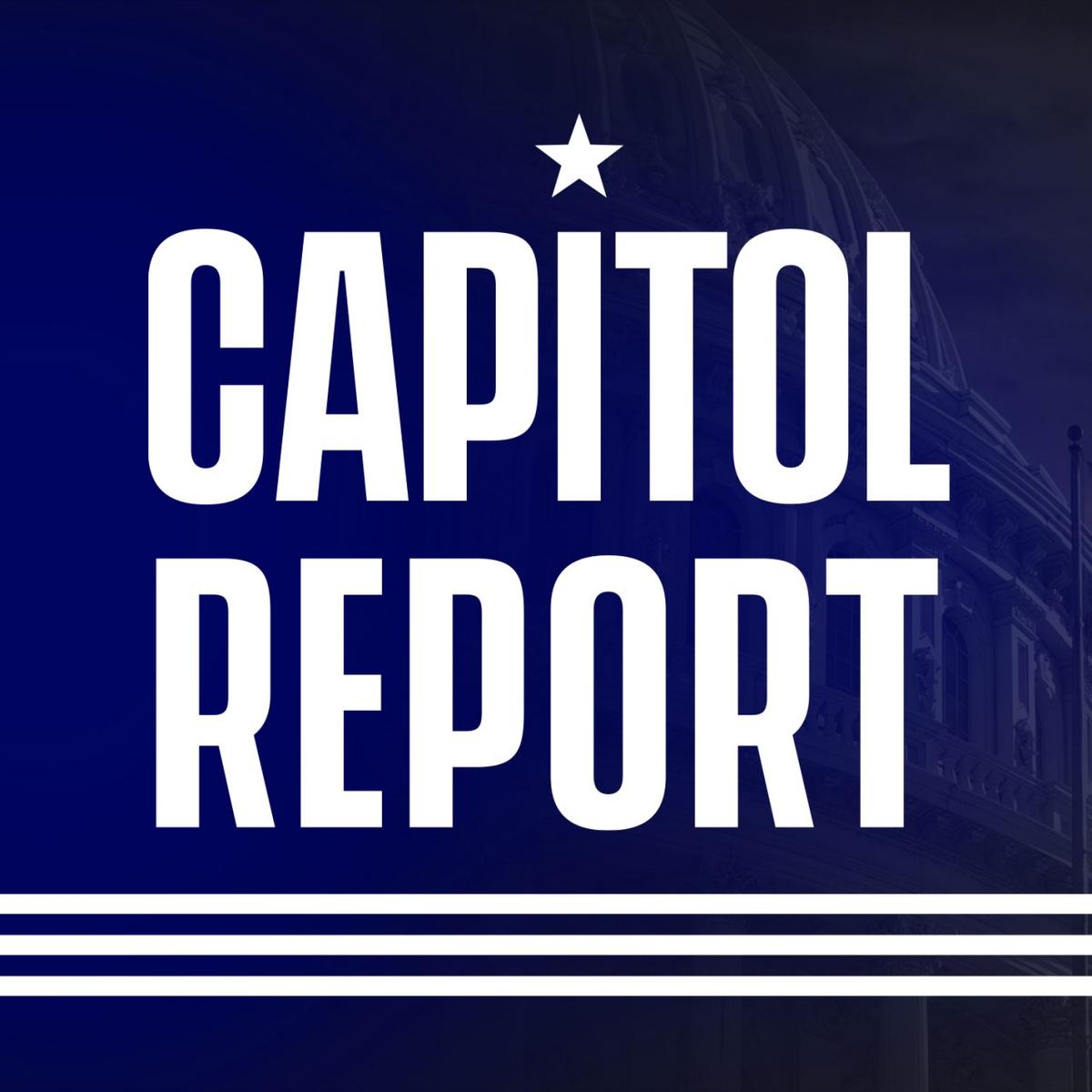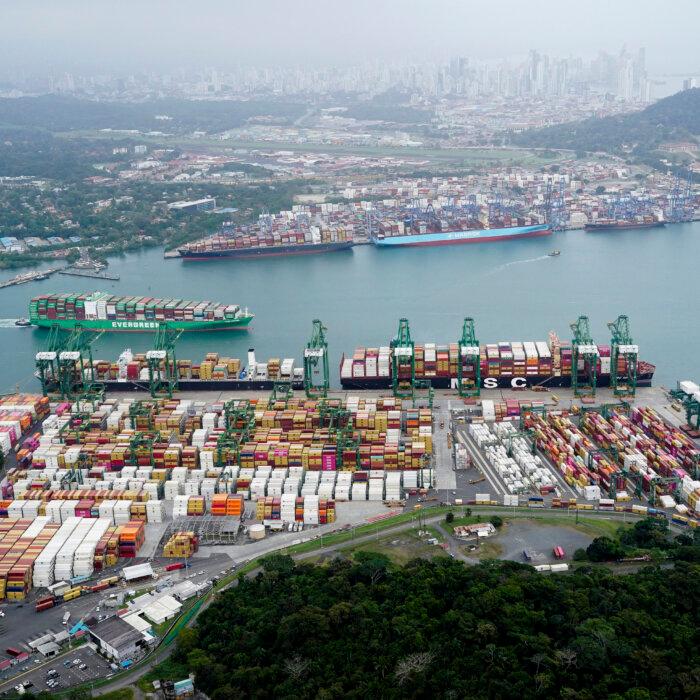Senate Passes Trump’s Agenda Budget Blueprint After Late-Night Voting Session
The resolution now heads to the House, where there are already warning signs that the blueprint could face hurdles.

Grow Your Own Bouquets: How to Start a Cut Flower Garden
Don’t worry about plant size, balance, complementary colors, and the overall design—simply plant what you like. These smart techniques will help.

‘Audrey’s Children’: This Doctor Should be Nominated for Sainthood
While not a stellar biopic, “Audrey’s Children” is sure to inspire good deeds in medical profession aspirants and is definitely worth a watch for everyone.

Standing at the Edge of Eternity: How to Visit the Grand Canyon
From lightning storms to the whisper of the Colorado River, the Grand Canyon offers awe at every turn.
Most Read
Top Stories
Epoch Readers Stand With Musk Amid Anti-Tesla Protests: Poll
The data suggest a counter-protest is growing in the form of deepening brand loyalty, and growing new consumer and investor interest in Tesla.
Trump’s China Tariffs Aim to Tackle Decades of Trade Imbalance, National Security Threats
Despite joining the WTO in 2001, China did not evolve into the fully-fledged market economy that the United States had hoped for.
States Move to Protect Americans’ DNA From China
As concerns grow about biotech advancements that would allow for Americans’ DNA to be weaponized, many states are enacting protection laws.
INFOGRAPHIC: Crafting the Perfect Cup
Explore the extensive art of coffee, from familiar café favorites to elaborate world specialties.
USDA Orders to Expand Logging in National Forests Under Emergency
Agriculture secretary declared 59 percent of national forests to be in an emergency situation due to high risk of wildfires and hazardous tree conditions.
Digital Despair: How Social Media Fuels Teen Anxiety and Overmedication
More teens are experiencing anxiety and depression, taking medication, and struggling with the fallout of drugs—problems that can carry into adulthood.
Trump Says Musk Will Likely Leave Government in ‘A Few Months’
‘There’s going to be a point where he’s going to have to leave,’ the president recently said.
Why Industrial-Scale Cyber Scamming of US Victims Is Thriving In Burma
Cyber crime costs the global economy billions of dollars a day, but many of the perpetrators, in scam centers in Burma, could themselves be victims.
US Faces Uphill Battle With EU Leviathan Over Tech Regulation, Experts Warn
The EU’s centralized decision-making and legal framework make it difficult for member states to alter or retract the Digital Services Act, say MEPS.
Shen Yun Performs to Full House in Southern California City Despite Fake Bomb Threat
Theatergoers told The Epoch Times the threats didn’t deter them from attending the performance.
Judge Issues Permanent Block on Trump Admin’s Change to NIH Indirect Cost Rate
The administration said the court lacked jurisdiction and that NIH followed existing regulation.
Trump’s 10 Percent Universal Tariffs Take Effect
The baseline tariffs will impact about $3 trillion in imported goods.
Blue Origin, SpaceX, ULA Awarded Space Force Launch Contracts
SpaceX alone is expected to receive nearly $6 billion for 28 launches.
Medicare Won’t Expand Coverage of Anti-Obesity Drugs
The announcement comes a day after the Senate confirmed Dr. Mehmet Oz as head of the Centers for Medicare and Medicaid Services.
Chevron Ordered to Pay More Than $740 Million in Louisiana Coastal Damage Case
The company has vowed to appeal.
Strengthening Without Lengthening: 5 Exercises You Can Do by Barely Moving a Muscle
Sometimes it’s hard to get motivated to do much movement-based exercise. Fortunately, isometric exercises offer strengthening without moving much at all.
Tracking Trump’s High Level Appointments, Senate Confirmations
The Senate is undertaking the confirmation process for the president’s new administration.
Private Space Mission Completes Historic Polar Orbit With Pacific Splashdown
This splashdown marks the first time humans have returned from space to the Pacific Ocean since 1975.
North Carolina Appeals Court Rules Thousands of Contested Ballots Must Be Verified
Voters who provide their necessary verification information within the 15 days will have their votes counted.
Day in Photos: Flooding in Kentucky, Earthquake in Myanmar, and Protests in Italy
A look into the world through the lens of photography.
8 Simple, Science-Backed Habits to Build a Stronger Brain and Fight Cognitive Decline
Experts share eight proven ways to hone a sharper, stronger, more resilient brain.
Special Coverage
Special Coverage































































![[PREMIERING 4/5, 9PM ET] How I Almost Ended Up in Jail for Exposing a Secret Gender Transition Program: Eithan Haim](https://www.theepochtimes.com/_next/image?url=https%3A%2F%2Fimg.theepochtimes.com%2Fassets%2Fuploads%2F2025%2F04%2F05%2Fid5837215-250404-ATL_Eithan-Haim_HD_TN-600x338.jpg&w=1200&q=75)

![[PREMIERING NOW] From Facing 23 Years in Prison to Being Exonerated: J6er John Strand on Standing Firm](https://www.theepochtimes.com/_next/image?url=https%3A%2F%2Fimg.theepochtimes.com%2Fassets%2Fuploads%2F2025%2F04%2F04%2Fid5837088-interview_John-Strand_REC-600x338.jpg&w=1200&q=75)














































